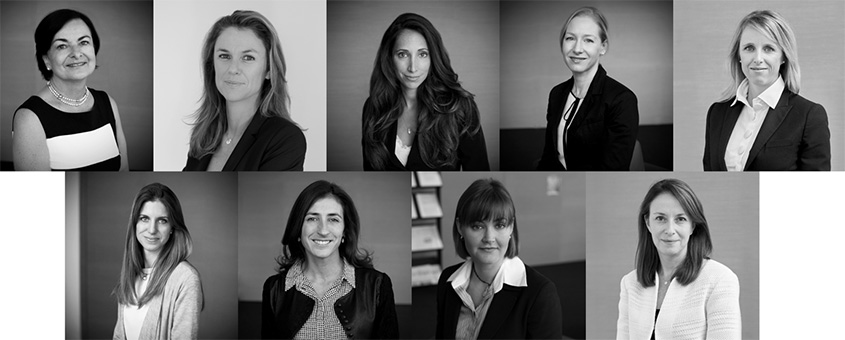“The Pledge” – Promoting Equal Representation in Arbitration
March 8, 2017
The Equal Representation in Arbitration Pledge was launched in 2016 and has more than 1,000 signatories to date, including WIPO. We talked to Ms. Domitille Baizeau, Partner at law firm LALIVE, to find out more.
Ms. Baizeau is a WIPO Neutral, who has been appointed by the WIPO Arbitration and Mediation Center in complex WIPO arbitrations as sole arbitrator. Ms. Baizeau also is a regular speaker at WIPO alternative dispute resolution events.

Could you tell us what the Pledge is about?
The Pledge is about equal representation in arbitration. It was launched essentially as a way to open the minds of the key players in international arbitration (users, counsel, arbitrators, institutions) to the need for more gender diversity in this field, in particular on arbitral tribunals. It simply invites counsel, co-arbitrators (who select the president) and institutions to think about (step 1) and reach out to (step 2) the many talented female arbitrators on the circuit who have remained by and large less visible than their male counterparts.
The Pledge is careful not to insist on equality but rather on equal opportunity. From the outset, it has been designed to reach a broad range of practitioners, firms, associations and institutions. This is reflected in the members of the Steering Committee.
What changes have you seen since the Pledge?
I have definitely seen a change of attitude, especially once we were onto our 5th or 6th launch dinner in various jurisdictions. People started to talk openly about the lack of gender diversity and the need to change the situation, not as a crazy initiative, but as a sensible, much needed push in arbitration. This opened a wider debate about the need for diversity in general so as to broaden the pool of talented arbitrators (gender, age, ethnic diversity) and in turn, the real issue: the lack of female arbitration partners in law firms, which in itself is a major obstacle. That concerns everyone, including or foremost the large law firms which have taken a stance in support of the Pledge.
I have also seen real concrete changes. Around me, people have really started considering female candidates as arbitrators, systematically, whereas before it was simply by chance that a woman would have ended up on a short list. I saw people, including more senior male practitioners, taking pride in supporting the Pledge by appointing women as arbitrators or on panels at conferences. I have not seen much difference in my own volume of appointments, but I have seen new names being put forward, including from outside mainstream jurisdictions or the usual global law firms.
If you could make one recommendation to all of the signatories of the Pledge, what would that be?
Force yourself to act upon it, whenever you are looking for an arbitrator, a speaker at a conference, an expert, a co-counsel to partner with, a lawyer to recommend a client to: for every man or every two men you think of, think of at least one woman to put on your short list, and then only make a decision. You will be surprised how many incredibly talented female professionals you can identify and also support in this way; even if they are not selected immediately, their names and profiles are being put on more people’s radar screen.